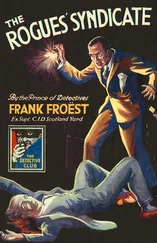'They're good,' said Jérôme.
That was praise indeed, coming from his lips. In fact he was exceptionally pleased with the lobsters. They were on the small side, but fairly heavy to make up for it, and their shells were a shiny dark blue.
Then he came to the last pair. 'Too light,' he said.
The wholesaler frowned. With one hand he picked up a lobster that had met with Jérôme's approval, and in the other he held one of the rejects. He weighed them against each other.
'You're right, Monsieur,' he said, in consternation. 'I do apologise. But there's not much in it.'
'True,' said Jérôme. 'A little difference like that wouldn't be noticed in a seaside cafe – but this is Troisgros.'
'Please accept my apologies. I can go back and-'
'That won't be necessary. We'll see which of our guests has the smallest appetite.'
The wholesaler apologised again.
A short while later Jérôme was in Troisgros's magnificent kitchens, getting to grips with the evening menu. He had put the lobsters in a tub.
When it was time to blanch them, he asked for a large pan of water to be heated. Speed was of the essence when dealing with lobster- as soon as it was caught, its flesh began to lose flavour. Blanching stabilised it, and killed them. Later, when it was almost time to serve them, they would be cooked through. Jérôme waited until the water reached boiling-point, then dropped a lobster head-first into the pan. The air inside its body cavity escaped in a high-pitched scream. Then he drew it out and put it aside. One by one he repeated the process… nine, ten… He reached for the eleventh, lighter than the others, and lowered it into the steaming water.
He pulled it out, and swore under his breath.
What on earth had happened to the creature? Its shell had been ripped open and a claw had fallen off Jérôme snorted with rage. He put it down on the work surface and nudged it gently on to its back. The underside was damaged, and a slimy white substance filled the shell where the meat should have been. He turned to the pan and stared into it. Blobs of something that bore no resemblance to lobster flesh were floating in the water.
There was nothing he could do about it, and besides he only needed ten. Jérôme never risked buying too little – he had a reputation for getting the balance just right. It was important to know precisely how much of everything would be needed – in the interests of economy, of course, but also to have sufficient in reserve. Once again, the strategy had paid off.
But it was annoying all the same.
The tub caught his eye. There was one lobster left, the second of the pair he hadn't liked. But there was no time to worry about that now – into the pan with it.
Wait! He hadn't cleaned the water.
A thought struck him. The diseased lobster had been lighter than the others. This live lobster felt lighter too. Maybe it was infected with a virus or a parasite. Jérôme took the twelfth lobster out of the tub and laid it on the work surface. Its long antennae slanted back along its body twitching constantly, while its bound claws moved feebly. When lobsters were removed from their natural habitat, they tended towards lethargy. Jérôme prodded it gently and bent down to it. A transparent substance was oozing from the joint where the carapace met the segmented tail.
What the hell was that?
Jérôme crouched close to it.
The lobster raised its upper body and its black eyes seemed to fix on him.
Then it burst.
THE APPRENTICE WHOM JÉRÔME had put to work scaling fish was only three metres away from the scene, but a narrow wall unit stacked with utensils obscured his view of the stove. The first he heard was a bloodcurdling scream. Then Jérôme staggered backwards, clutching his face. The apprentice darted towards him, and both men lurched into the cupboard behind them. Saucepans jangled and something crashed to the floor, shattering.
'What is it?' the apprentice asked, panicking. 'What happened?'
The other chefs came running. The kitchen was like a well-organised factory in which each worker carried out a particular task. One was responsible for game, another for sauces, a third for pates, a fourth for salads, a fifth for patisserie and so on. For a moment everything was thrown into confusion. Then Jérôme lowered his hands and pointed a trembling finger towards the work surface next to the stove. A thick transparent substance was dripping from his hair. Blobs covered his face and a stream ran down his neck. 'It – it exploded at me,' he gasped.
His apprentice took a step forward and looked with revulsion at the lobster fragments. Only the legs were still intact. A claw lay on the floor and the jagged edges of the shell gaped open. 'What did you do to it?' he whispered.
Jérôme's face was distorted with disgust. 'I didn't do anything!' he yelled. 'It just burst!'
They fetched towels for him to wipe himself clean. The apprentice touched the substance with his fingertips. It felt taut and rubbery, but it disintegrated easily, dispersing over the worktop. Without stopping to think, he took a jar from the shelf and spooned in clumps of the jelly. Then he swept some of the liquid over the top and twisted on the lid tightly.
Pacifying Jérôme posed more of a problem. In the end someone poured him a glass of champagne, and eventually he recovered some of his poise. 'Clean up that mess,' he commanded. 'I'm going to wash.'
Immediately the kitchen staff started putting his workplace back to rights. They scrubbed the stove and the surrounding area, disposed of the lobster remnants, cleaned the pan and threw away the water in which the lobsters had spent the last hour of their lives. It went the way of all waste water – down the drain and into the sewers where it mingled with the other fluids that the town had flushed away.
The apprentice took charge of the jar with the jelly. He hadn't thought what to do with it so he asked Jérôme, who had returned to the kitchens in clean chefs whites.
'Good idea to save some,' Jérôme said. 'God knows what it could be. Send it somewhere where they test that kind of thing. But don't mention the incident. It never happened. Not at Troisgros.'
The story never left the kitchens, which was just as well as it would have shown the restaurant in an unjustly negative light. Troisgros wasn't to blame, but nothing was worse for a top-class restaurant than whisperings about its hygiene.
The apprentice kept a close eye on the substance in the jar. When it started to disintegrate, he added more water because it seemed the right thing to do.
It looked like pieces of jellyfish, he thought, and jellyfish needed water – in fact that was pretty much all they were made of In any case it seemed to do the trick. For the time being the substance remained stable. Troisgros made some discreet telephone enquiries, and the jar was immediately sent for analysis at the nearby university in Lyons. Two hours later, it landed on the desk of Bernard Roche, a professor of molecular biology. Even with the extra water in the jar, the jelly was disintegrating again. Only a few small clumps remained. Roche began to test it straight away, but the last blob dispersed before he could examine it in detail. He'd seen enough, though to identify some molecular compounds, whose presence surprised and bewildered him. One was a highly potent neurotoxin, but he couldn't be certain whether it came from the jelly or the water in the jar.
The liquid, he discovered, was saturated with organic matter and all kinds of chemicals. Since he didn't have time to analyse it immediately, he decided to return to it in a few days' time. He put the jar in the fridge.
THAT EVENING JÉRÔME FELL ILL. At first he felt nauseous. The restaurant was full, so he tried to forget about it and carried on as usual. The ten intact lobsters were exquisite, and there was no call for any more. In spite of the unpleasant incident that morning, everything went smoothly – as was expected at Troisgros.
Читать дальше












